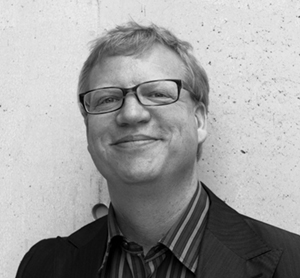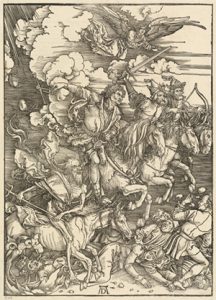
Some Marco events have been rescheduled, including the 2020 spring symposium on apocalyptic themes allied with the exhibition; this will now occur March 5-6, 2021. The Fellows Evening celebrating the terrific research by Marco graduate students has been postponed until the fall. Students recently awarded fellowships or other support for travel to foreign archives, libraries, and schools will be able to complete their projects once the travel bans are lifted. After reflecting on all of the rescheduled events and the postponed research trips, I am reminded of the important scholarly contributions by Marco people and how well we communicate our findings in presentations and publications. Now is the time for the Marco community to remain connected with one another as we confront a global pandemic.
During his tenure at UT, Jay Rubenstein was characteristically modest about transforming Marco into a place for cutting-edge research disseminated to the public. He finished his book, Nebuchadnezzar’s Dream: The Crusades, Apocalyptic Prophecy, and the End of History, while at Marco during a period when he hatched the idea of an exhibition about how the Book of Revelation shaped medieval culture. Last summer, Jay announced his appointment as the new director of the Center for the Premodern World at the University of Southern California. Jay is sorely missed and the Marco Institute remains truly indebted to his vision.

Albrecht Dürer (German, 1471 – 1528), The Four Horsemen, 1498, woodcut on laid paper, Patrons’ Permanent Fund and Print Purchase Fund (Horace Gallatin and Lessing J. Rosenwald) 2008.109.5
Looking ahead, we see growth and new opportunities for the Marco Institute. Two Haslam Public Humanities Graduate Fellows working with Marco faculty and staff assisted in writing labels and didactic texts for the Visions of the End exhibition. Katie Kleinkopf and Kelsey Blake, serving in 2018-2019 and 2019-2020 respectively, have each acquired valuable experience in museum curation. Recently, Kleinkopf received a tenure-track appointment in the Department of Religious Studies at the University of Louisville.
A new format for Medieval Day, our outreach event for students in Knox County schools, took place on campus at the McClung Museum for the first time in early March 2020. We hope that additional partnerships with local cultural institutions can yield future programs about the premodern world. We’re also looking to consolidate our scholarly partnership with the University of Poitiers.
The hard work of talented people sustains the Marco Institute and many people deserve high praise for remaining valiantly strong in the face of headwinds. Special appreciation goes to program coordinator Katie Hodges-Kluck, who recently added graphic design to her already impressive list of talents. The dynamic teaching of Marco’s lecturer Lauren Whitnah is sparking a dramatic uptick in majors and minors in Medieval and Renaissance Studies. Laura Howes stepped in to become interim associate director when that position was left vacant last fall. We applaud the faculty and students who have worked so hard to adapt to online teaching and telecommuting this Spring. Finally, we all wish to remain in close communication despite our current physical barriers and we invite you to share your news with us.
Gregor Kalas
Interim Riggsby Director